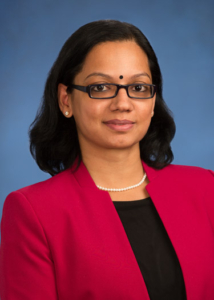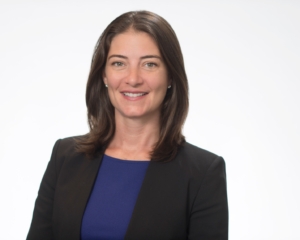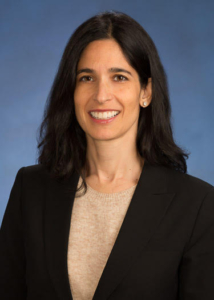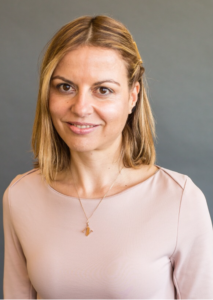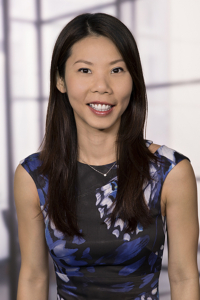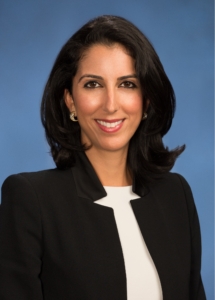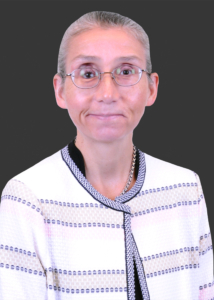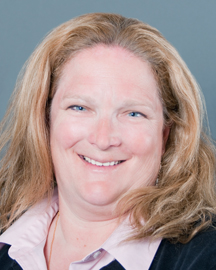Fear is imaginary, says entrepreneur Nikki Barua. “The more you focus on it, the more it grows, and the only way to overcome fear is to replace it with faith. I have always had faith in myself, my team and my purpose and that’s what fuels my confidence.”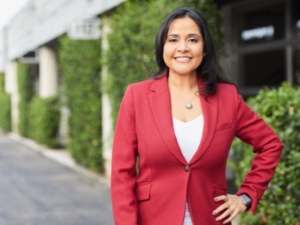
She finds that most people go through their lives worrying about losing love, money or job security. “That fear can keep you from taking risks. Imagine the life you could create if you weren’t gripped by fear. Imagine doing what you love and not worrying about how people view you or not being defined by other people’s expectations of you.”
A Career Built on Helping Companies Thrive in Disruption
Barua knows all too well the importance of moving past those fears. An immigrant from India, she came to America in 1997 for business school. After graduation, she built her career first in management consulting, and then in digital marketing, honing her skills as a digital innovator and a business leader in the corporate world.
As she helped global brands transform their business with digital solutions, she noticed that many clients struggled with the pace of change in technology, competition and customer expectations. Big brands needed to be more agile and adapt quickly to change and needed to think and act with the agility of a startup, she found. “They needed an entrepreneurial culture designed for change. That challenge fascinated me, and I was obsessed with a singular question, ‘How do you make elephants run?’”
That question led to her entrepreneurial journey: She left her corporate career and the prestige and security that accompanies that territory and started her business with no clients, no case studies and barely any capital.
“All I had was a clear purpose — to unlock the limitless potential of people and organizations. That clarity gave me the courage to take the steps forward despite my fears, learning to navigate through unknown territory,” she says.
Although she had managed P&Ls and led people, she nevertheless felt unprepared for the challenges of building a business from scratch. As she describes it, each day was filled with untold challenges and gut- wrenching setbacks, followed by big successes and unexpected victories. As she kept learning and adapting, BeyondCurious soon became a successful business, and Barua reveled in her successful transition from corporate leader to entrepreneur.
Along the way, she discovered an important truth that has been the foundation of her success: Whether you work in a big corporation or run your own business, the fundamentals are the same — delight your customer, inspire your team and keep innovating.
Bold Dreams Will Define Your Success
Barua remembers daydreaming about her future as a young girl in India, and how big the dreams seemed at the time. But eventually those dreams came true so she dreamed bigger and bigger. “The lesson I learned is that you only achieve what you dream of, so if your dreams aren’t big, your achievements won’t be either,” Barua notes. “When you dream big, your creativity is unleashed; your confidence grows; your potential is unlocked; and you break barriers of what you thought was possible for yourself and for the world.”
As her company has succeeded, she has found that her biggest challenge is growing herself along with the organization. She advises other entrepreneurs to stay hungry, keep learning and get comfortable being uncomfortable. “When you embrace the discomfort of not knowing, you are able to learn at an exponential rate,” she says.
Along with dreams comes action, and Barua believes firmly you have to stand for what you believe in. “Be authentic in your culture and leadership, and build a tribe of believers that have a shared sense of purpose and core values,” she says. “A movement is more powerful than any organization.”
Proving Herself as a Change Agent
Today’s world is experiencing disruption across the board — in society, government, technology and culture. “When the things we believed in and the rules we lived by no longer hold true, it presents an opportunity to create something better and more meaningful,” Barua says, adding that leaders have the privilege and the responsibility of shaping the world the way they wish it to be.
That’s why it’s so important not to just be business leaders or entrepreneurs, but to be inspiring role models and purpose-driven change agents.
She believes the ultimate purpose of leadership is to unlock the potential in others by giving people a platform to be their best and creating an environment where people thrive because they are constantly learning, growing and breaking barriers. She has found that when people are aligned around shared values and connections, they are more fulfilled.
She herself has a mission to unlock the potential of a billion people – talk about dreaming big!
“I believe we are all limitless, but we are held back when we lack the clarity, courage or conviction to go beyond our barriers,” she says.
“I am deeply passionate about being a catalyst that helps people unlock that limitless potential. It’s what I love to do above all else and what has fueled all my career success,” she says.
“As an entrepreneur, educator, public speaker, author and social activist, everything I do is aligned to that singular mission. Every day is about taking courageous action, learning, adapting and never giving up.”

